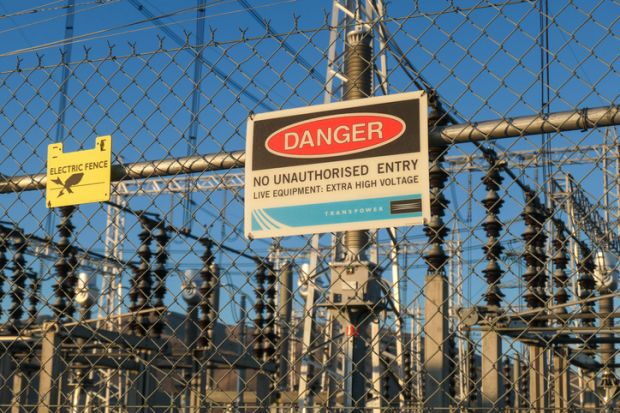Insufficient funding is a “serious threat” to higher education institutions, a major European survey has found.
The European University Association’s Trends 2024 report surveyed senior representatives for almost 500 institutions across the European Higher Education Area, with Italy, Germany, Romania, Poland and France among the most responsive countries.
Asked to detail obstacles to improved teaching and learning, almost half of respondents cite a lack of funding as their biggest concern, while 70 per cent place it among their top three. A third of institutions surveyed say their financial resources have declined over the past five years, while a further tenth say their funding was “stable but not very good”.
Financial circumstances weren’t universally bleak across the region: almost 30 per cent of respondents say their funding had increased, while 27 per cent say their resources had “remained stable and are quite good”. However, the responses varied significantly among countries: in Albania, Azerbaijan, Bosnia and Herzegovina, Hungary, Kosovo, Romania and Slovenia, at least half of higher education institutions described budget increases, while in Belgium, Finland, Ireland, Norway, Poland, Portugal and Ukraine, at least half had seen their budgets fall.
Thérèse Zhang, the EUA’s deputy director for higher education policy and joint author of the report, told Times Higher Education that underfunding “is a trend that is continuing”, noting that in the report’s previous edition, “it was already the first obstacle to the enhancement of learning and teaching”.
“It’s not just that universities lack money,” Dr Zhang said. “It’s a question of how funding matches the ambitions of universities, and the multiple missions that universities are expected to fulfil.”
Of the institutions surveyed, more than two-thirds say that service to society – also known as the “third mission”, after research and education – was a rising strategic priority, with 83 per cent describing it as an area of “high importance”. Other highly rated priorities included internationalisation, innovation, industry collaboration, sustainable development and social inclusion and priority.
But these institutional missions, respondents say, weren’t always met with sufficient support. “Institutions are much more aware of the role that they can play in society, and how urgent it is that they step in in the big transitions that societies and economies undergo,” said Michael Gaebel, EUA director for higher education policy and another of the report’s authors. “We can see enthusiasm and readiness to engage, but less dedicated resources to do so.”
Asked about the status of the third mission at their institution, almost a quarter describe it as underfunded compared with other missions, while a fifth say it was under-resourced from a staff perspective. A further fifth say their efforts in the area were “not always and fully recognised”.
Respondents also describe a significant emphasis on equity, diversity and inclusion (EDI), with 90 per cent calling EDI “an explicit value and a major priority for our institution”, and 88 per cent saying their institution had specific strategies and policies in place. Two-thirds say government policy emphasised equity, diversity and inclusion as “a priority for higher education”; nevertheless, only two-fifths said the government followed up with funding support.
“We know that anecdotally, when you go to institutions, there is a lot going on [in terms of EDI initiatives],” said Mr Gaebel. “But it’s often individual staff going the extra mile, without necessarily being properly resourced.”
Register to continue
Why register?
- Registration is free and only takes a moment
- Once registered, you can read 3 articles a month
- Sign up for our newsletter
Subscribe
Or subscribe for unlimited access to:
- Unlimited access to news, views, insights & reviews
- Digital editions
- Digital access to THE’s university and college rankings analysis
Already registered or a current subscriber? Login







